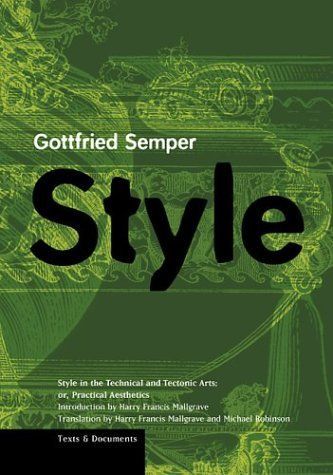
Style in the Technical and Tectonic Arts, Or, Practical Aesthetics
The enduring influence of the architect Gottfried Semper (1803-1879) derives primarily from his monumental theoretical foray Der Stil in der technischen und tektonischen Künsten (1860-62), here translated into English for the first time. A richly illustrated survey of the technical arts (textiles, ceramics, carpentry, masonry), Semper's analysis of the preconditions of style forever changed the interpretative context for aesthetics, architecture, and art history. Style, Semper believed, should be governed by historical function, cultural affinities, creative free will, and the innate properties of each medium. Thus, in an ambitious attempt to turn nineteenth-century artistic discussion away from historicism, aestheticism, and materialism, Semper developed in Der Stil a complex picture of stylistic change based on scrutiny of specific objects and a remarkable grasp of cultural variety. Harry Francis Mallgrave's introductory essay offers an account of Semper's life and work, a survey of Der Stil, and a fresh consideration of Semper's landmark study and its lasting significance.